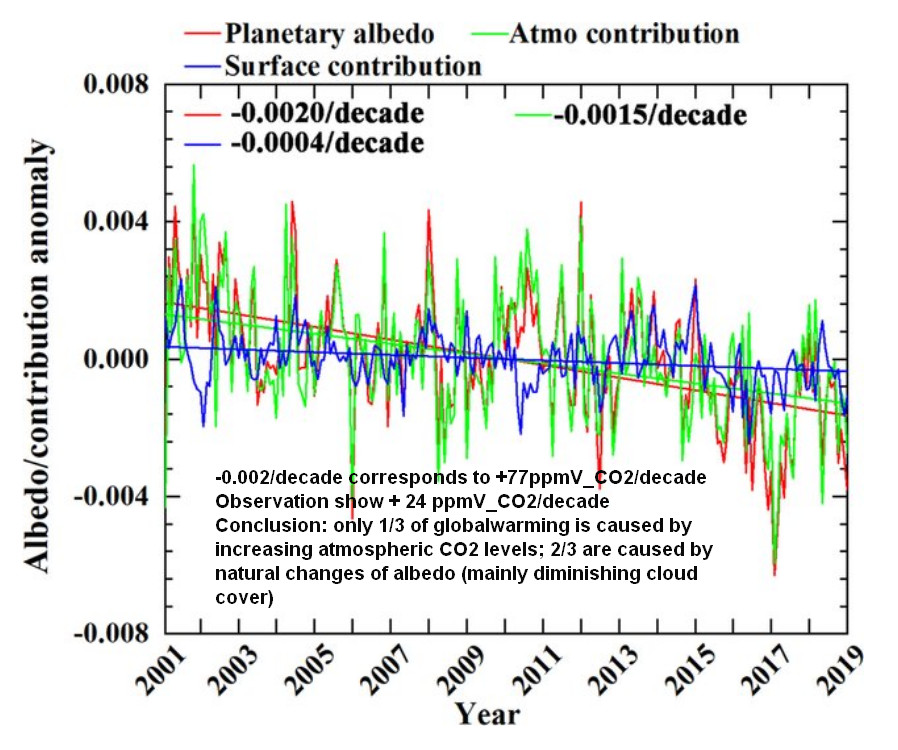A new paper by Mingzu et al. published in Theoretical and Applied Climatology (Springer) researches the changes of planetary albedo during the years 2001 to 2018. The albedo is the percentage of incoming solar radiation reflected back to the space. It is approx. equal to 0.3 (or 30%).
The paper finds a change of -0.0020/decade, i.e. the planetary albedo diminishes, and this increases the radiative solar forcing and as a consequence causes a warming.
Here a quick back of the envelope calculation:
We know that an increase of 22 pmV_CO2 causes a forcing of 0.2 W/m2
A decrease of 0.01 of albedo causes a forcing of 3.4 W/m2
So a decrease of 0.002 of albedo causes a forcing of 3.4/5 = 0.68 W/m2 which is equivalent to an increase of 0.68/0.2*22 = 75 ppmV CO2 .
Now, looking at the Mauna Loa data, we see that CO2 increases by 43 ppmV from 2001 to 2018 ( = 19 years), which corresponds to 43/1.9 = 24 ppmV/decade (rounded value).
Conclusion:
Albedo change is equivalent to an increase of 75 ppmV CO2 per decade
We observe: 24 ppmV CO2 increase per decade, which is about 1/3 of 75 (24/75 = 0.32)
Ergo: 2/3 of the observed global warming is not caused by increasing CO2

See also here.
August 6, 2023 at 00:38 |
The paper is paywalled, and sci-hub doesn’t have it, but from the abstract it’s mainly a slight decline in cloud cover. So, do we have any idea what caused it?
August 6, 2023 at 02:07 |
One possibility:
https://www.science.org/content/article/changing-clouds-unforeseen-test-geoengineering-fueling-record-ocean-warmth